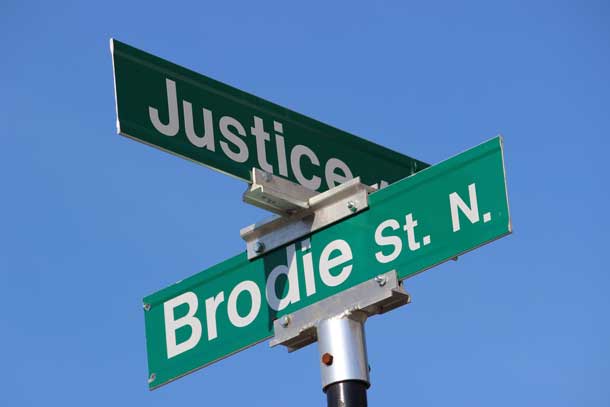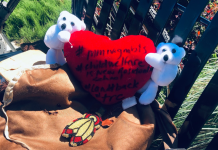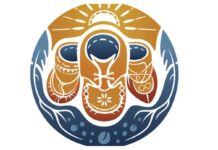TORONTO / Thunder Bay – “The tragedy of violence towards Indigenous people is completely unacceptable and must be met with real solutions to uproot the causes,” says Minister Dunlop. “We listened carefully to the survivors, families and loved ones who participated in the National Inquiry. We also collaborated closely with Indigenous partners, including members of the Indigenous Women’s Advisory Council, to ensure their voices guided Ontario’s action plan on the critical issues impacting their communities. I am proud of where we have come but know there is much more work to be done to ensure all Indigenous people can live in safety, free from violence.”
The Ontario government is taking further action to address the disproportionate rate of violence against Indigenous women and girls.
The province has released a strategy developed in collaboration with Indigenous partners that reinforces Ontario’s commitment to act on the Calls for Justice in the Final Report of the National Inquiry into Missing and Murdered Indigenous Women and Girls. The plan addresses critical gaps in supports for Indigenous women, children, and Two-Spirit, Lesbian, Gay, Bisexual, Transgender, Queer, Questioning, Intersex, Asexual, plus (2SLGBTQQIA+) people, including the need for better access to stable housing, health care, education and employment.
Nishnawbe Aski Nation (NAN) Deputy Grand Chief Walter Naveau has acknowledged today’s release of the province’s Strategy in Response to the Final Report on the National Inquiry into Missing and Murdered Indigenous Women and Girls as a significant contribution to a National Action Plan.
“On behalf of Nishnawbe Aski Nation I acknowledge all women, girls and 2SLGBTQQIA+ people who have gone missing or have been murdered. Our hearts are with their families, survivors and communities,” said Deputy Grand Chief Walter Naveau. “We thank the Indigenous Women’s Advisory Council and Ministers Dunlop and Rickford for the collaborative efforts to ensure this strategy was developed with Indigenous women and organizations leading the way. Developing the priorities and actions required to support the unique needs for safety and healing for the women, girls and 2SLGBTQQIA+ people in First Nation communities would not have been possible without having their voices at the forefront. This Strategy is a significant contribution to a National Action Plan, and we expect it to be incorporated in a federal approach.”
Ontario’s Strategy was developed in partnership with the Indigenous Women’s Advisory Council (IWAC), a collaborative effort from Indigenous organizations across the province who advised the province on violence prevention. NAN was represented on the IWAC by NAN Women’s Council member Theresa Sutherland, a member of Fort Albany First Nation.
Jill Dunlop, Associate Minister of Children and Women’s Issues unveiled the strategy during a virtual ceremony where she was joined by the Indigenous Women’s Advisory Council and other Indigenous leaders, communities and organizations.
Pathways to Safety: Ontario’s Strategy in Response to the Final Report of the National Inquiry into Missing and Murdered Indigenous Women and Girls includes 118 initiatives organized under six pathways that will help create the changes required to eliminate the root causes of violence and advance meaningful reconciliation.
The Pathways for Action are:
- Pathway to Security – Initiatives that promote safety, healing and wellness through prevention-focused resources, investments and programs, such as access to safe and affordable housing.
- Pathway to Culture – initiatives supporting the education, training, employment and revitalization of Indigenous languages, cultures and identities.
- Pathway to Health – initiatives that will promote safety and improve access to services including mental health supports for Indigenous women, children and justice-involved youth.
- Pathway to Justice – initiatives that will contribute to system-wide transformation in priority sectors including policing services and child welfare.
- Pathway to Responsibility and Accountability – principles that will be upheld to promote ongoing government accountability in collaboration with the Indigenous Women’s Advisory Council and Indigenous organizations.
- Pathway to Identifying and Addressing Systemic Anti-Indigenous Racism and Indigenous Gender-based Analysis – initiatives that focus on addressing anti-Indigenous racism and developing an Indigenous gender-based analysis approach to inform Ontario’s strategy.
As part of Ontario’s strategy, the mandate of the Indigenous Women’s Advisory Council has been extended beyond March 2022. This will ensure that Indigenous voices continue to drive the strategy’s priorities and help build on the province’s progress to date in responding to violence against Indigenous women, children and 2SLGBTQQIA+ people.
“We are deeply grateful for the leadership from Indigenous partners and organizations who have shaped the vision for Ontario’s path forward to address the root causes of violence against Indigenous women and children,” said Greg Rickford, Minister of Indigenous Affairs. “We will continue moving forward in partnership as we take action to address the gaps in government support for survivors and create a secure future by enabling better access to safe, accessible, stable housing, and education and employment opportunities.”
“It’s been such a long painful journey, and while we are not done yet, at least we are now being heard,” said Sandra Montour, Indigenous Women’s Advisory Council Co-Chair. “Through this strategy, may the voices of our missing and murdered and their families be forever heard to promote the safety and well-being of Indigenous women, girls and 2SLGBTQQIA+ families for seven generations to come.”
The action plan builds on Ontario’s existing foundation of services and supports by and for Indigenous communities, such as public education and prevention campaigns and community-based services, including the Ontario Indigenous Children and Youth Strategy, Ontario’s Roadmap to Wellness and Ontario’s Child Welfare Redesign.






